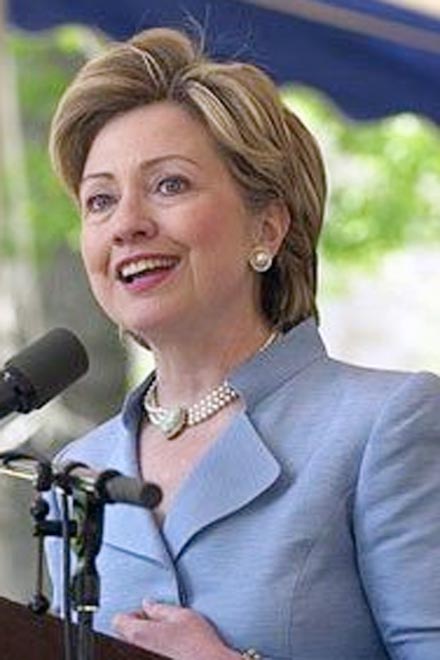The United States said on Monday it has begun discussing new sanctions to pressure Iran's government and the Islamic Revolutionary Guard Corps to curb Tehran's nuclear programs without hurting ordinary people, Reuters reported.
"We have already begun discussions with our partners and with like-minded nations about pressure and sanctions," U.S. Secretary of State Hillary Clinton said at a news conference with Qatari Prime Minister Sheikh Hamad bin Jassim al-Thani.
"Our goal is to pressure the Iranian government, particularly the Revolutionary Guard elements, without contributing to the suffering of the ordinary (people), who deserve better than what they currently are receiving," she added.
The United States, which accuses Iran of secretly pursuing nuclear arms under the cover of its civil nuclear program, will continue its "dual-track" approach of pursuing negotiations while also considering sanctions to change Tehran's policy.
Officials have said targeted sanctions being considered by the White House include expanding travel and other restrictions for individuals and institutions with close ties to the leadership and the Islamic Revolutionary Guard Corps.
Iran has rebuffed the West's year-end deadline to accept an enrichment fuel deal aimed at quelling international fears it is trying to build nuclear weapons, something Clinton said "disappointed" the Obama administration.
"We've avoided using the term deadline ourselves ... because we want to keep the door to dialogue open. but we've also made it clear that we can't continue to wait," she said. "We cannot ... stand by when the Iranians themselves talk about increasing their production of high enriched uranium."
Iran says its nuclear program is to produce power so that it can export more of its valuable oil and gas. Uranium enrichment can produce fuel for power plants or, if refined to a much higher level, for nuclear weapons.
Clinton also voiced dismay at how the Iranian authorities have cracked down on protests against the leadership that erupted after a disputed presidential election in June.
In the bloodiest unrest since the aftermath of the election, eight people were killed on Dec. 27 and more than 40 reformist figures, including four advisers to opposition leader Mirhossein Mousavi, have been arrested since then.
"We are deeply disturbed by the mounting signs of ruthless repression that they are exercising against those who assemble and express viewpoints that are at variance with what the leadership of Iran wants to hear," she said, adding that she wanted to express solidarity with Iran's peaceful protesters.
Iranian authorities have repeatedly accused opposition leaders of links to "foreign enemies", warning that they will not tolerate any more anti-government protests after the turmoil that broke out during the Shi'ite ritual of Ashura.
Hardline officials have accused the opposition leaders of causing tension in the country, urging Mousavi and another moderate defeated candidate, Mehdi Karoubi, to repent or "face charges of supporting apostates in defiance of God".
The government has stepped up a crackdown on the reform movement since Ashura. Opposition websites said dozens of pro-reform students, activists and journalists have been arrested in the past few days in different cities.






